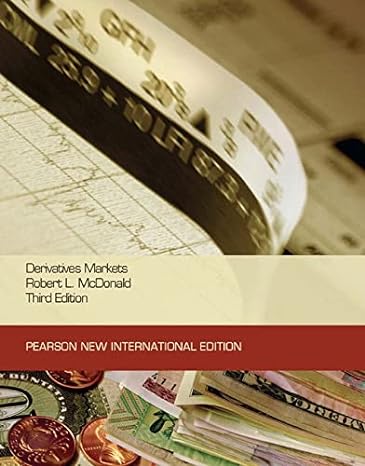11. Suppose S0 = $100, K = $50, r = 7.696% (continuously compounded), = 0, and...
Question:
11. Suppose S0 = $100, K = $50, r = 7.696% (continuously compounded), δ = 0, and T = 1.
a. Suppose that for h = 1, we have u = 1.2 and d = 1.05. What is the binomial option price for a call option that lives one period? Is there any problem with having d >1?
b. Suppose now that u = 1.4 and d = 0.6. Before computing the option price, what is your guess about howit will change from your previous answer? Does it change? How do you account for the result? Interpret your answer using put-call parity.
c. Now let u = 1.4 and d = 0.4. How do you think the call option price will change from (a)? How does it change? How do you account for this? Use put-call parity to explain your answer.
Step by Step Answer:

Derivatives Markets Pearson New International Edition
ISBN: 978-1292021256
3rd Edition
Authors: Robert L. Mcdonald





